- Home
- Lynne Reid Banks
Uprooted Page 3
Uprooted Read online
Page 3
Candy bars turned out to be scrumptious, though. We got one each. Mummy said, “I’m sorry, darlings.” We looked at the shelves behind the bar. They were laden with delicious food – no rationing here! But now we had money rationing.
Cameron, for once, couldn’t hold back. “Could we have some peanuts, Auntie? They can’t cost much,” he said.
“Oh, why not!” said Mummy. She bought us a bag to share, and lit another cigarette.
We went back to our seats and Cameron and I played hangman for a while. Suddenly a man came and sat on the spare seat next to Cameron. He was tall and a bit grey-haired with a tanned face.
“Excuse me,” he said. “May I talk to you?”
Mummy, who’d been powdering her nose with her little swansdown puff, snapped her compact shut and said, “Yes?” rather too sharply for good manners.
“I couldn’t help hearing about your trouble – I was at the next table,” he said.
I felt Mummy stiffen. I didn’t know what was coming, but she did, and she was going to hate it.
“You’re from the Old Country,” he said.
I would soon learn that a lot of Canadians call England ‘the Old Country’. “Well, I’ve got folks there. I’m very worried about them, with all this talk of invasion and all. I want to help them, and I can’t. So I thought, maybe I could help you instead.”
Mummy just sat there. Nobody spoke. Cameron and I stopped playing our game to listen. We needed some help. Was Mummy going to say no? I knew she wanted to. She was very proud. I remembered Daddy’s talk.
“I couldn’t take money from you,” she said. “It’s kind of you. I just couldn’t.”
“No? Well, could you allow me to invite you and the kids to dine with me in the dining car this evening?”
Mummy bent her head. Then she lifted it again and looked this kind man in the face.
“Yes,” she said in a strangled voice. “I could. Thank you.”
“Thank you,” he said. “I think we should eat early, don’t you? So the kids can get an early night. They begin making the berths up at around seven, and the first sitting for dinner is at seven too. They ring a bell. I’ll come by for you.”
He stood up to leave. “My name’s Hank, by the way.”
“Mine happens to be Mrs Hanks,” said Mummy. She couldn’t help smiling.
Cameron and I looked at each other. We pulled gleeful faces.
Hank paid for our meals from then on – two and sometimes three a day. Mummy tried to cut down on meals, and for herself I think she’d rather have starved, but she couldn’t starve us or keep us on sandwiches (and lemonade called Seven-Up) for three long days. Even with the odd peanut.
By the time we got back from the dining car that first night, the night conductors had miraculously transformed the seats into beds. Each person had either an upper or a lower berth. To climb into the upper berths there was a ladder. Of course Cameron and I both wanted an upper berth but only he got one. I was in a lower berth and so was Mummy.
Once you were in your berth, you could draw thick green curtains across and fasten them together from the inside, so you were in your own little room. On the first night I thought this was the best thing in the whole train.
But for Mummy it was a nightmare. Her claustrophobia kicked in.
“I don’t know how I can stand this,” she said to me in a tight, desperate voice. Then she was ashamed of worrying me, and said, “Never mind, darling. I’ll manage somehow.”
I got undressed in my berth. I loved being in it. I realised it was better to have a lower berth because I had a window. I could open the blind and watch the dark scenery going by. The rocking of the train and the rumble of the wheels soon put me to sleep.
When I woke up in the middle of the night, I climbed out into the empty, half-lit aisle, and looked into Mummy’s berth. She wasn’t there! Where could she be? She’d said “I’ll manage”, but how could she? She couldn’t even sit up all night in her seat because our seats weren’t there any more – they’d been turned into berths.
I pattered down the aisle in my bare feet. By instinct I headed towards the back of the train. Everyone was asleep behind their curtains. I opened the doors between the coaches and skipped through the swaying, accordion-y connectors, holding tight to the rail.
Suddenly I felt the train slowing down and when I was just in the middle of one of these tricky in-between bits, it stopped altogether. Not sharply enough to wake anyone; it just came to a standstill, with a lot of hissing.
I hurried on to the last coach – the observation coach. This would be where Mummy would head for – where she could sit outside and not feel shut in. I was absolutely sure of it.
A few men were there, having a late-night drink at the bar. Not bothering about them seeing me in my nightie I ran past them, through the carriage to the open bit at the back. I knew Mummy would be there – I just knew it. But I was wrong.
I stood on the platform, staring round. We’d stopped, not in the middle of all that emptiness as I’d thought, but in a little town. All the buildings were low and apart from a few lonely street lamps, it was almost as dark as London. There was just a wooden platform with a sign and a name that I couldn’t read. The train stood, hissing and kind of chuntering – an impatient noise. A noise that said, I’m not staying here long.
I stood there, clutching the rail, staring into the dimness. A man came on to the platform behind me.
“Are you looking for your mom?” he said.
It was the first time I’d heard that word. But I nodded.
“She was here. And she didn’t come back through the bar. She must’ve got off the train.”
Got off the train? That was impossible. The train would soon leave. Had she – no! But if not? – run away?
I wanted to shout for her. Mummy! Mummy! Come back! But the man was there and I couldn’t. I couldn’t let him think I had thought for one split second that she would leave us.
“Are you cold?” the man asked.
It was very warm, for night-time, but I was shivering.
He took off his jacket and wrapped it round me. “Tell you what. You sit out here and I’ll bring you a Coke while you wait for her.”
The ‘Coke’ tasted not of coal as I expected, but of mouthwash. I hated it. I clutched the bottle tightly, because just standing there thinking the train was going to start forward, leaving her behind, was unbearable. I stared out into the half-lit station and my whole inside clenched up. I was barely breathing. The man sat on one of the seats.
“Coke OK?”
I forced myself to nod, my eyes straining in the darkness.
“Where you folks headed?”
“Saskatoon.”
“That’s mighty far west. You got family there?”
“Mummy’s—” My voice stopped coming out.
“You from the Old Country?”
I tried to swallow. There was no spit. I took a sip of the sickly sweet stuff from the bumpy bottle to moisten my mouth. “Yes.”
“I guess they’re being pretty brave over there,” he said. “And you folks are brave, too, coming to a strange country. Where’s your pop?”
“My – what?”
“Your dad.”
“He couldn’t come.”
“He’s in the forces?”
“No. He’s too old. He’s a doctor.”
“So your mom’s doing this on her own.” He shook his head. “She’s one brave lady.” He stood up suddenly. “And here she comes.”
I looked where he was looking – at the end of the platform. It was true! She came out of the darkness at the far end, into the light. There was a man with her, one of the conductors. I recognised him.
When Mummy saw me leaning out over the rail, she broke into a run. In another minute I was in her arms. I hugged her as if I’d never let go.
“Lindy – my darling – what are you doing up?”
The conductor was waving a flag. The train hissed once more and started to
move. Both the men disappeared. It was just me and Mummy on the swaying back of the train, with the breeze blowing as we picked up speed.
“Mummy – Mummy – where were you? I thought you’d run away!”
“Oh, my God, you didn’t!” she said.
She sat down and took me on her knee. I’d never loved her so much, or had such a feeling of relief.
“I was sitting out here,” she said. “I’d run out of cigarettes. I’m afraid I was crying. I felt so lonely and scared. And that very sweet man came out and sat with me and I told him – about Daddy and how I didn’t know what we were going to find in Saskatoon – and when the train stopped at that little town, to take on water, he took me for a cup of tea to the tiniest café you ever saw … It was all made of logs … He even bought me some cigarettes – look, they’re called Black Cat! I knew the train couldn’t leave without him. I never dreamed … Oh, my poor little poppet, you must have been so frightened!”
She slept the rest of the night in my berth, tops to tails, with the blind up on the window so the moon could shine in.
Hank was travelling alone, and at meals we talked. He lived in Calgary, which was even further west than we were going. We asked him what it would be like, in Saskatoon.
“When you get to your host’s house,” he told us, “the first thing he’ll ask you is, ‘Do you ride horseback?’”
“Well, we do,” said Cameron eagerly.
“Y’see, out west, the folks want to keep some of the old pioneering ways. They don’t want to get soft and citified, even if they’re not ranchers and trappers any more. So, they eat regular meals, like those spoilt easterners, except for one, and that’s breakfast. For breakfast they keep up the old traditions.”
“What do you mean?”
“I mean, they go out and catch their own breakfasts.”
Cameron’s mouth fell open.
“You mean, they go hunting, on horseback?”
“Sure do. Can you shoot?”
“No.”
He sucked in his lips. “Gotta learn to shoot. You start with a BB gun. Course, you can’t shoot anything big with those, but you can get a few gophers.”
“What’s a gopher?” Cameron and I asked at once.
“You don’t have gophers in England? They’re little critters about this big – ” He held his hands about eight inches apart – “They live on the prairie, in holes. Millions of ’em. You shoot a couple, fry ’em up – makes a dandy meal on toast. Of course you gotta skin ’em and gut ’em first.”
Mummy had her nose in her hands. I looked at her. Then back at Hank. He looked completely serious.
“What about girls? Do they have to shoot gophers too?”
“Well, no, girls are let off shootin’ if they don’t like it. But they do have to ride out on the prairie, and then they can catch their breakfast another way.”
“How?”
“I’ll tell you. You make a loop in a long piece of string, and put it around a gopher hole. Then you wait. When he puts his head up, you jerk the loop tight round his neck, and there’s your breakfast.”
I made a face.
“Of course,” Hank went on, “if you got a soft heart and don’t wanna eat him, you can have him for a pet.”
I thought of my pet rabbit, Moley, left behind. “How do I catch him?”
“Gophers are crazy about condensed milk.”
Mummy gave a stifled snort.
“So what you do is, you take your tin of condensed milk. You punch two holes in it, top and bottom, and then you use that same length of string with the loop in it to drag the tin across the prairie. The gopher comes along and starts licking up the milk, and by the time the tin’s empty, he’s a-layin’ there on his back with his belly full of his favourite food, and you can ride back and pick him up, and he’s yours. For life.”
I listened, entranced. I could see it all! My own pet gopher!
“I’ll eat cereal for breakfast!” I exclaimed.
Mummy couldn’t contain herself. She bent over her knees and exploded.
“And what about me?” she managed to choke out. “I can’t ride and I can’t shoot and I refuse to strangle little things to death.”
Hank seemed to think about this. “Well, maybe on account of you’re all fresh from the Old Country they may let you off and give you bacon and waffles for a few days, till you settle in. But I’m sure relieved you kids can ride horseback, because maybe they won’t, and you’ll have to go out and shoot something to eat on the first morning. Enough for your mom as well.”
“I could do it. I bet I could,” said Cameron. “I’ve hunted foxes and got the brush. I was in at the kill. I got blooded!”
So then he explained very seriously to Hank about fox hunting and Hank said, “You mean they smear fox blood on the kids’ faces and give ’em the fox’s tail? Are you telling me a tall story, by any chance?”
The last part of the train journey got us seriously worried. The windows were now so dirty that if we wanted to see out properly we had to sit on the observation platform. The interesting countryside we’d seen earlier, changed. It was no longer full of lakes and hills, pine forests sprinkled with little towns and the occasional log cabin, not to mention exciting wildlife – Cameron had seen an eagle, and I’d seen a huge thing with strange antlers that Hank told us was a moose. Now the landscape was flat. No trees. No lakes or rivers. Just flat, flat, flat land under a swaying sea of yellow wheat. There were few signs of life. Only some farms, miles apart – hours apart.
“What are those things?” Cameron asked Hank, who was sitting with us pretty much full-time now.
“Grain elevators,” said Hank. “When the wheat’s harvested they bring it to the railheads and store it in those big square towers. Then they load it on to the trains to take it all over Canada.”
“But aren’t there any towns – proper towns?”
“Sure there are. Saskatoon is a big town. Population forty-odd thousand.”
“That’s not big,” said Cameron. “London’s got millions of people.”
“Ah well, I’m not saying it’s a big city. Though that’s what they call it. The Hub City of the Prairies.”
“How old is it?” Mummy asked.
“Not old. Maybe sixty, eighty years. Might still be some old-timers living there who remember when it was nothing but an Indian settlement.”
I pricked up my ears. “Indians? Real Red Indians?”
Hank looked a bit uncomfortable. “Well you know, they aren’t red, and they’re not Indians. We Anglos call them that, because we made a mistake when we first got here, thinking we’d arrived in India! But if you ever meet one, you don’t want to say, ‘Gee, are you an Indian?’”
“So what should we call them?” Cameron asked.
“By their tribe, maybe. Around Saskatchewan, it’s Cree. And other tribes. But mostly Cree.”
“Where are they? Can we see them?”
“They’re all on reserves now.”
Later, when I got Cameron alone, I said, “Wouldn’t it be fun if we really had to ride across the prairie and we met some Crees!”
“What if they were Apaches? Or Navajos? There are hundreds of different tribes. There must be a generic name for them if we can’t call them Indians.”
Cameron and his lovely long words! Generic. I got it. Something for all of them, instead of Indians. But for the moment I forgot about them, whatever they were called.
“Look at it,” he said. “It’s all wheat. How could we ride through that? It’s weird.”
If ‘weird’ means strange, unknown, utterly different, then he was right about where we were going. Or, as Hank taught us to say, “He sure slobbered a bibful.”
We reached Saskatoon at six o’clock in the morning. Mummy woke us early, when there was hardly any light coming through the window of my berth – just enough to see the endless wheat fields rushing by. She took us along to the cramped, smelly washroom at the end of the carriage and produced some clothes she
’d been saving for us to make a good impression when we arrived. My frock was very creased but at least it was clean. Cameron wore his school blazer, even though it had been getting hotter every day.
“Shall I wear a tie?” he asked.
“I don’t know … We should have asked Hank,” said Mummy.
She was putting make-up on. She hadn’t worn much on the journey, just lipstick and some powder, but now she put on eye shadow and mascara, and earrings. I thought she looked beautiful, and actress-y.
She wore a very pretty dress I hadn’t seen before, and stockings, and shoes with a bit of a heel. She wrapped her lovely blonde hair in a sort of turban. She looked like at home when she was going out for lunch. We bundled all the rest of our things into our suitcases as the train rocked the last few miles to our destination.
We stood near the exit door. Mummy smoked. She said, “I remember feeling just like this before I went on stage on a first night to play a big part.”
I’d once acted a big part in a school play – a queen. I suddenly remembered standing in the wings in my red dress with my hair down my back, with such a sudden terror of forgetting my lines that I nearly ran away. Yes. It was like that now.
Only Cameron seemed completely calm. “I wonder if they’ll come to meet us in a horse and buggy,” he said.
Just as the whistle blew for Saskatoon, Hank turned up. He must have got up early to say goodbye.
“You’ve been quite wonderful,” said Mummy. “A lifesaver.”
He shook hands with her, but she suddenly kissed his cheek. She had to stand on tiptoe.
“You’re welcome,” said Hank.
We’d never heard that phrase before. Mummy stared at him.
“What a very nice thing to say,” she said.
“Here’s my address in Calgary,” he said, giving Mummy a card. “Let me know if you need anything. Be good kids for your mom, now.” He shook Cameron’s hand and gave me a hug. “Go git them gophers!” he said. “Oh! I forgot to tell you – you want some pocket money, the government pays a bounty for every tail!”

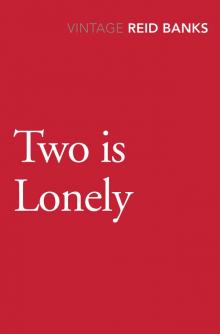 Two Is Lonely
Two Is Lonely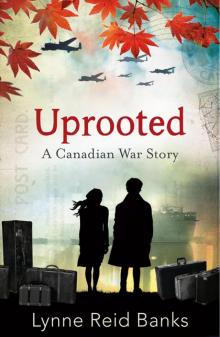 Uprooted - a Canadian War Story
Uprooted - a Canadian War Story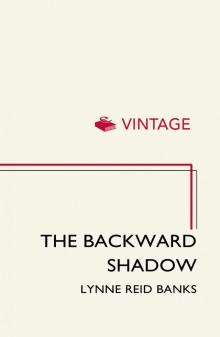 The Backward Shadow
The Backward Shadow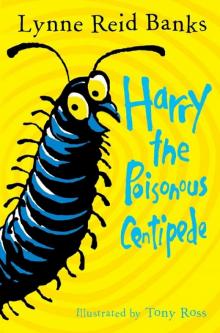 Harry the Poisonous Centipede: A Story to Make You Squirm
Harry the Poisonous Centipede: A Story to Make You Squirm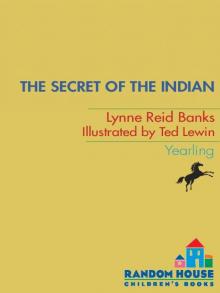 The Secret of the Indian (The Indian in the Cupboard)
The Secret of the Indian (The Indian in the Cupboard)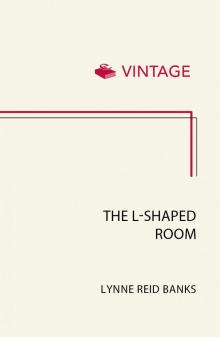 The L-Shaped Room
The L-Shaped Room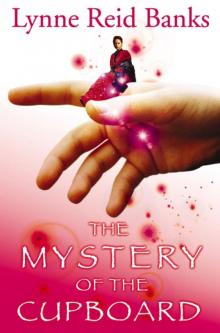 The Mystery of the Cupboard
The Mystery of the Cupboard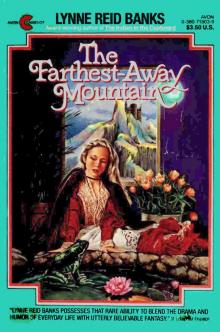 The Farthest-Away Mountain
The Farthest-Away Mountain Harry the Poisonous Centipede Goes to Sea
Harry the Poisonous Centipede Goes to Sea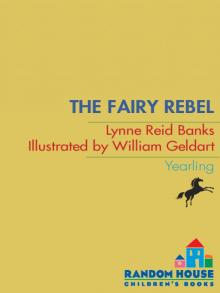 The Fairy Rebel
The Fairy Rebel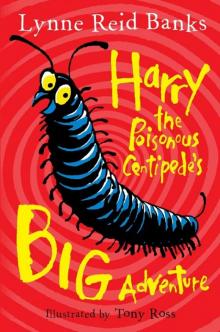 Harry the Poisonous Centipede's Big Adventure: Another Story to Make You Squirm
Harry the Poisonous Centipede's Big Adventure: Another Story to Make You Squirm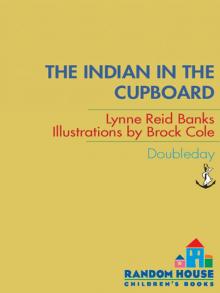 The Indian in the Cupboard
The Indian in the Cupboard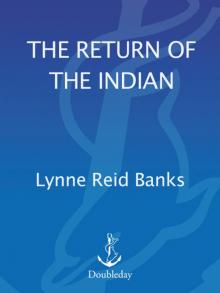 The Return of the Indian
The Return of the Indian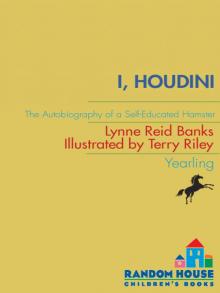 I, Houdini
I, Houdini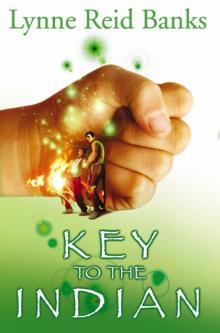 The Key to the Indian
The Key to the Indian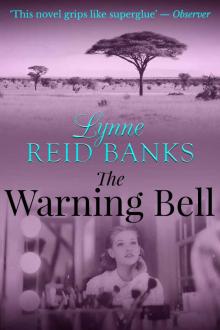 The Warning Bell
The Warning Bell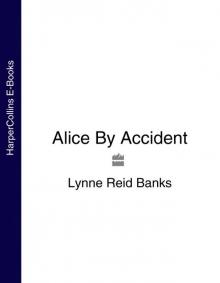 Alice by Accident
Alice by Accident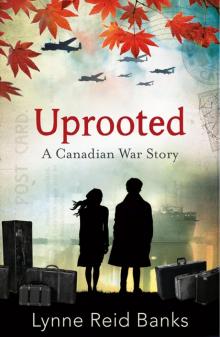 Uprooted
Uprooted Writing On the Wall
Writing On the Wall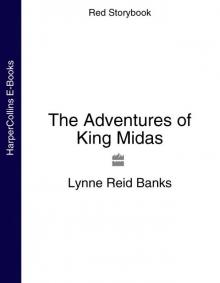 The Adventures of King Midas (Red Storybook)
The Adventures of King Midas (Red Storybook)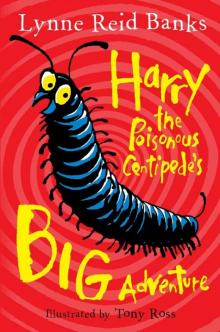 Harry the Poisonous Centipede's Big Adventure
Harry the Poisonous Centipede's Big Adventure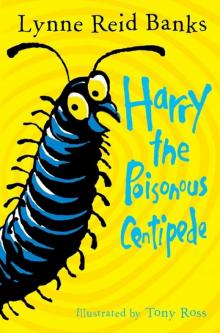 Harry the Poisonous Centipede
Harry the Poisonous Centipede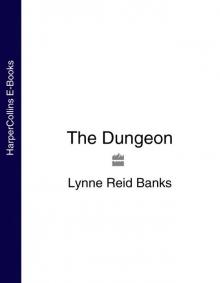 The Dungeon
The Dungeon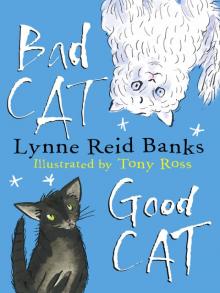 Bad Cat, Good Cat
Bad Cat, Good Cat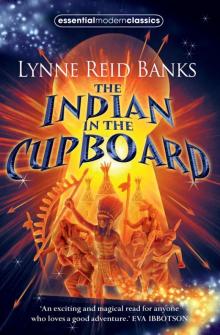 The Indian in the Cupboard (Essential Modern Classics, Book 1)
The Indian in the Cupboard (Essential Modern Classics, Book 1)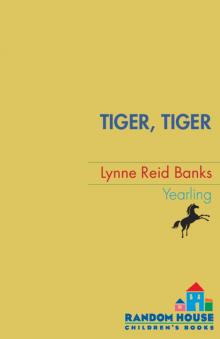 Tiger, Tiger
Tiger, Tiger